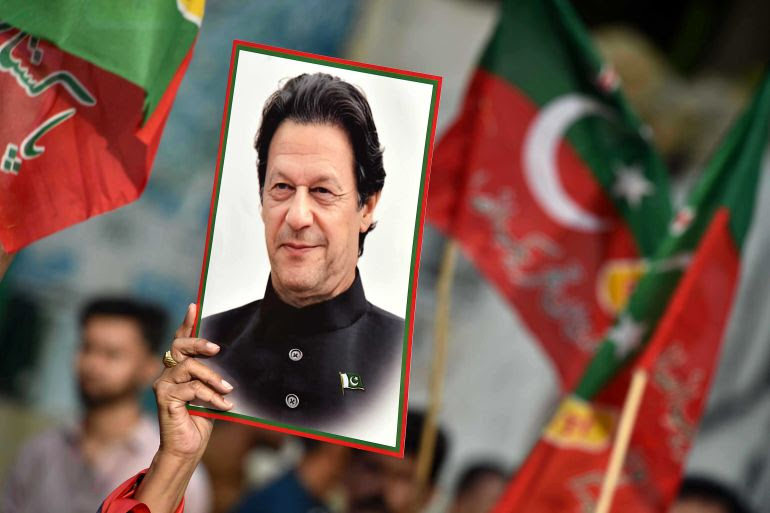Last Updated on January 25, 2025 by Muhammad Tabish
Pakistan’s political landscape has been thrust into deeper turmoil following the recent conviction of former Prime Minister Imran Khan. An accountability court sentenced Khan, the founder of Pakistan Tehreek-e-Insaf (PTI), to 14 years in prison on charges of misuse of authority and corruption. In response, PTI has announced its withdrawal from ongoing negotiations with the government, a move that threatens to exacerbate the nation’s existing political deadlock.

The negotiations between PTI and the government commenced late last year, aiming to address escalating political tensions and instability. Key issues on the table included the release of imprisoned PTI leaders—whom the party regards as “political prisoners”—and investigations into alleged electoral fraud in the previous year’s contentious elections. The talks were seen as a critical step toward fostering political reconciliation and ensuring national stability.
Imran Khan’s Conviction:
On January 17, 2025, the accountability court found Imran Khan guilty of corruption and misuse of authority, leading to a 14-year prison sentence. The charges pertained to allegations that Khan and his wife, Bushra Bibi, had accepted land from a real estate tycoon in exchange for illegal favors. This conviction represents one of the most significant legal challenges Khan has faced, given the magnitude of the financial impropriety involved.
PTI’s Response and Withdrawal from Negotiations:
Following the conviction, PTI issued a seven-day ultimatum to the government, demanding the establishment of two judicial commissions. The first commission was to investigate the circumstances leading to Khan’s arrest in August 2023, while the second aimed to probe the violent protests by PTI supporters, notably the incidents on May 9, 2023, when demonstrators attacked military offices and installations. The government’s failure to respond to these demands prompted Khan, through PTI Chairman Gohar Khan, to call off the negotiations. This decision was publicly announced after Gohar Khan’s meeting with the imprisoned former premier.
Implications for Pakistan’s Political Climate:
The cessation of talks between PTI and the government has intensified the political crisis in Pakistan. The nation has been grappling with instability since Khan’s ousting in 2022, a situation further aggravated by PTI-led protests demanding his release. These developments pose a significant threat to Pakistan’s economic recovery efforts, particularly in light of the ongoing $7 billion International Monetary Fund (IMF) bailout program.
Public Reaction and Potential for Unrest:
Imran Khan’s conviction has ignited a wave of protests across the country. Thousands of PTI supporters have converged on the capital, Islamabad, demanding Khan’s release and the resignation of the current government. Security forces have clashed with protesters attempting to breach barriers en route to the city center, leading to numerous arrests and escalating tensions. The government’s firm stance against the demonstrators, coupled with PTI’s withdrawal from negotiations, raises concerns about the potential for prolonged unrest and its impact on national stability.
Economic Ramifications:
The political deadlock comes at a time when Pakistan is striving to stabilize its economy. The ongoing political unrest threatens to derail economic reforms and undermine investor confidence. The IMF bailout program, crucial for the country’s economic recovery, could face setbacks if the political situation remains unresolved. Additionally, the possibility of international sanctions looms if the government is perceived as suppressing political dissent.
International Perspective:
The international community is closely monitoring Pakistan’s political developments. Concerns have been raised about the fairness of Khan’s trial and the government’s handling of dissent. Human rights organizations have called for transparent legal proceedings and respect for democratic principles. The situation has the potential to strain Pakistan’s diplomatic relations, particularly with nations advocating for democratic governance and human rights.
Conclusion:
Pakistan stands at a critical juncture, with its political future hanging in the balance. The conviction of Imran Khan and PTI’s subsequent withdrawal from negotiations have deepened the nation’s political crisis. To navigate this tumultuous period, it is imperative for all political stakeholders to engage in constructive dialogue, prioritize national interests, and uphold democratic values. The path forward will require compromise, transparency, and a steadfast commitment to the rule of law to restore stability and public confidence in Pakistan’s political system.
Read More Information: Source Al Jazeera
I’m Mohammad Tabish Blogger and a Professional web developer SEO Consultant and Freelancer. I am from Pakistan. I started My first blog (BlogRankSeo) in 2016 and then, and I have never looked back. I Have managed lots of blogs.



